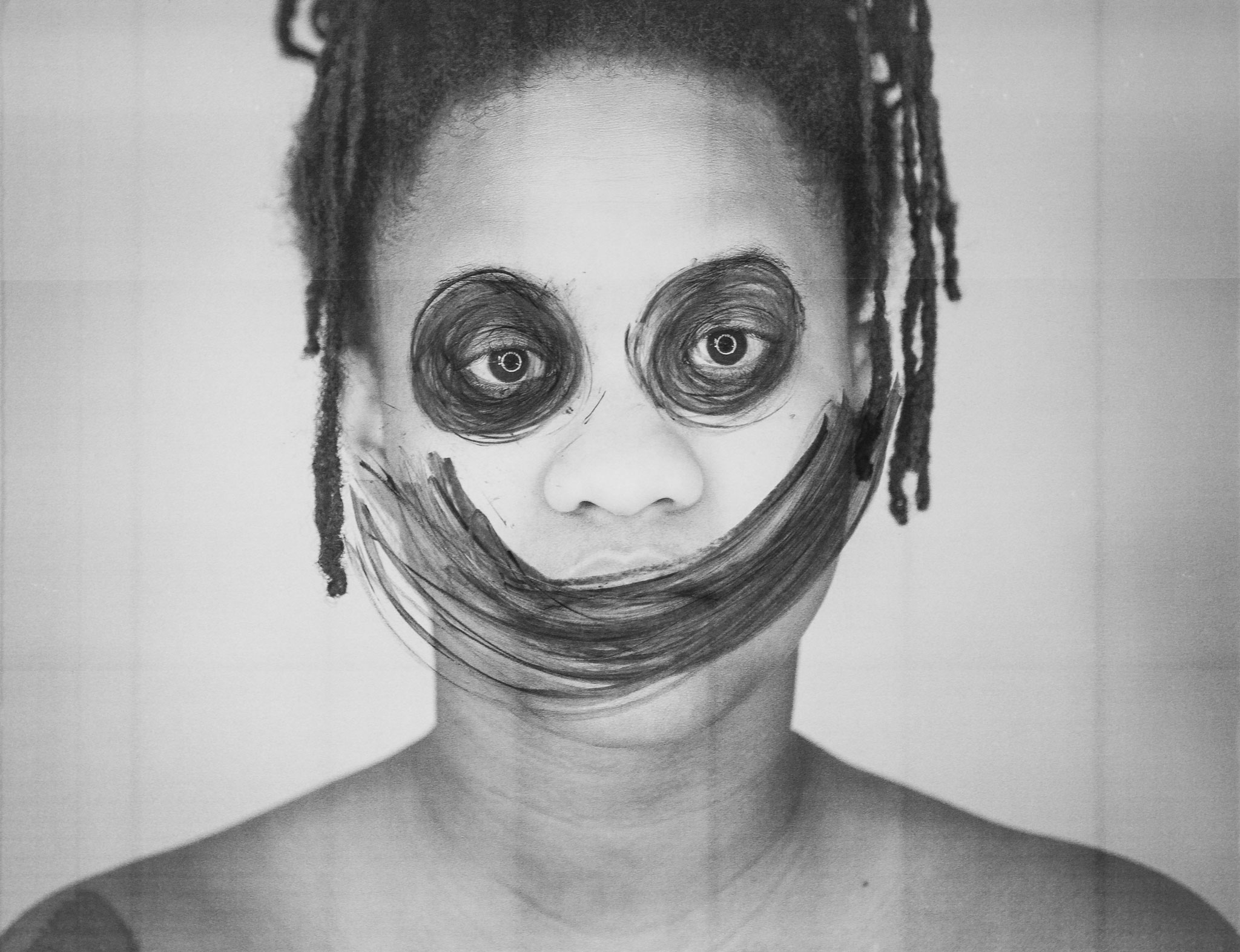She wishes she had fuller lips. She looks at the photo of herself and rubs her eyes, thinking how pretty she would be with thicker eyelashes. She tugs at the strands of hair tucked behind her ears. She thinks they should be longer.
“At least,” she thought, “I plucked my eyebrows.”
She hated having her picture taken. The 37 other women in the room felt the same.
Gathered to give local photographer Myesha Callahan Freet feedback on her latest project, “You’d Look Better With A Smile,” several women cried while giving testimony about how Myesha’s project opened them up to think about their faces — and the comments others have made about them.
Myesha’s goal was to find 18 female participants. More than 70 women reached out, some who wanted to be involved and others who simply offered support. A project that started out as a single self-portrait grew to over 50 different portraits of a diverse set of local women.
For someone who graduated from art school only four years ago, Myesha has already made her mark on the Inland Northwest. She was invited to host her first solo exhibit at the Post Fall’s Jacklin Arts and Culture Center featuring “You’d Look Better With A Smile.”
“When people see my project, and my art in general, they realize it’s gonna get real personal real fast.”
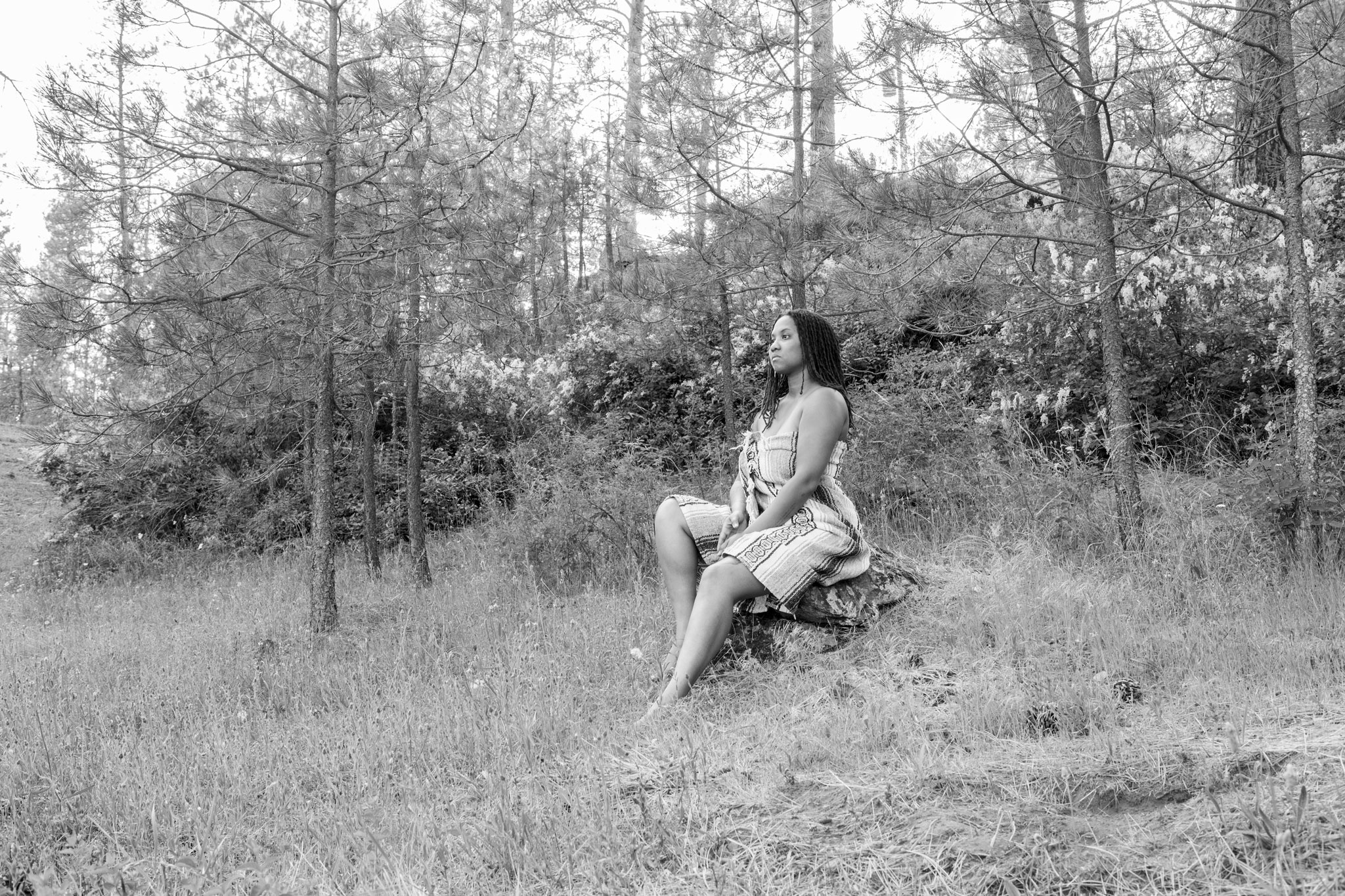
» Finding Her Passion
Myesha, a 34-year-old Texas photographer who recently relocated to Chattaroy, Wash., focuses mainly on portraiture. Her mentor at the University of Houston, where she graduated in 2014, guided her to the intimate side of photography.
“I went back to school because I was done with corporate America,” she said. “I always had a camera with me, and I fell in love with looking at people — figuring out ways to capture their spirit. A portrait is a statement of its own, a moment without force.”
Working in a cubicle in a United Airlines call center, Myesha was disappointed in how her life was turning out.
She looked around at the women who had been working for the company over 20 years. If she stayed seated, she would be stuck. She turned her sore neck away from the computer and gazed out the window. It was beautiful outside. She heard the clicking of fingers hitting keyboards and low-spoken phone conversations. She felt like a cog in a machine, not an individual.
She was done.
Myesha walked to her boss’s office and quit. Days later, she applied to the photography school at the University of Houston. She was accepted, and there was no looking back.
She started the photography company callahanfreet with her chemical engineer husband Christian. Since then, the pair has collaborated on several photography projects. Myesha’s solo projects, all focusing on portraiture, specifically black and white, serve as documentation of her life and relationships. She describes her work as deeply personal, deriving from perceived mischaracterization by those around her.
“As a black female artist, finding people like me in this area is really difficult,” Myesha said. “I’m often the only black woman in the room. People judge me; they have preconceived notions of the way I’m supposed to look and act. The purpose of my art is to strip away those stereotypes and show others who I am, the relationships I have and how I express myself.”
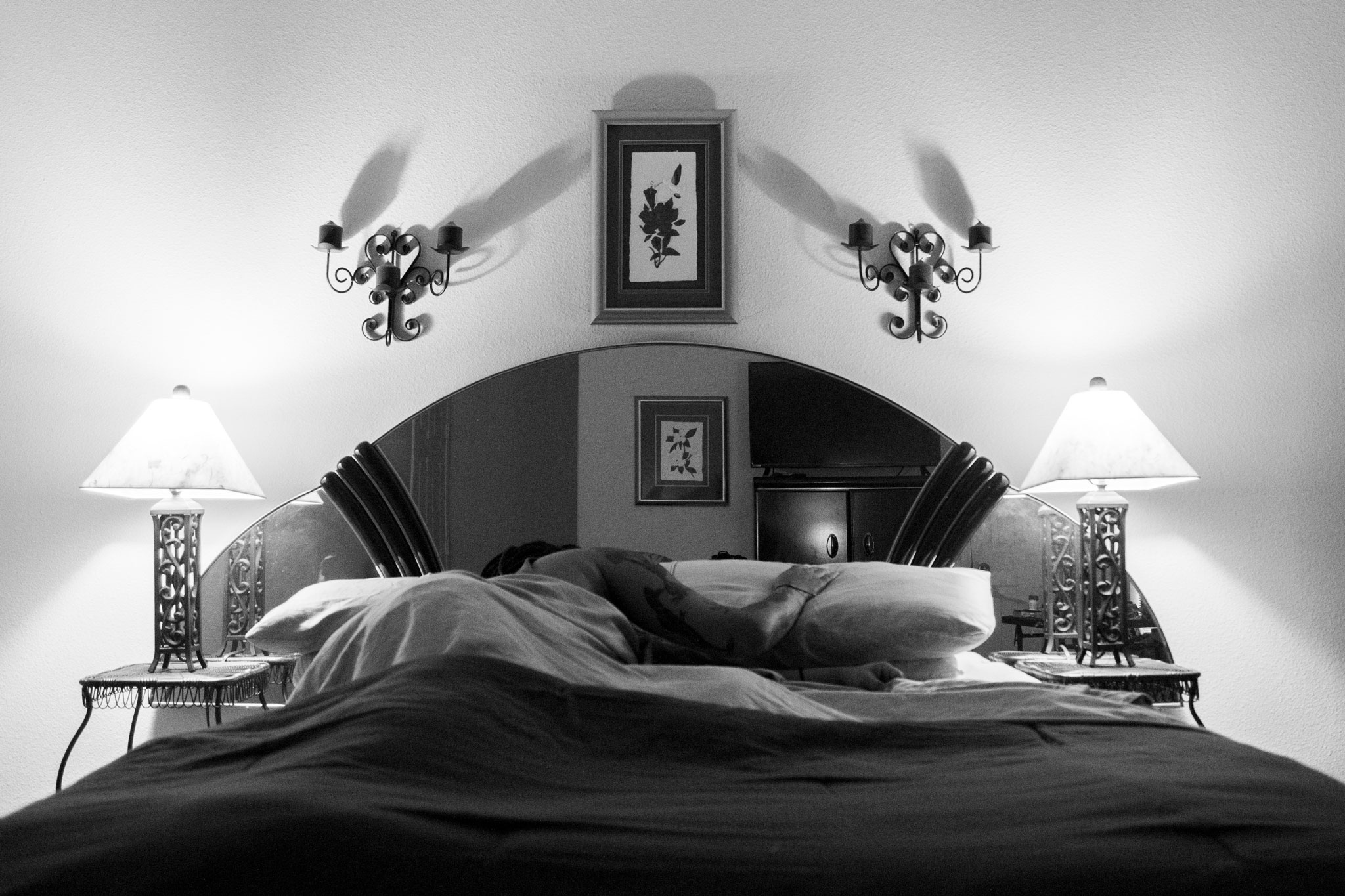

» A project is born
Myesha took a self-portrait, a close-up from her shoulders and above. She turned the photo black and white and printed it at the size of a large poster. She had never seen her face that close before.
Her face was serious, the expression she held most all the time. She thought about the man on the street who told her to smile. She’d look prettier that way. She thought about the man who told her to smile while playing with her young son. She thought about a male family member who told her a smile would make her more attractive. She thought about the man who told her to smile while she was running a 5K run. She couldn’t smile, she thought, “I’m trying to breathe.”
She picked up a piece of charcoal and drew a smiley face over her somber expression. The outcome was eerie and uncomfortable, just like the way Myesha felt when a stranger commented on her appearance.
“Why do I need to smile to be happy?” she said. “Most of the time, my face is blank because I am thinking. Smiling does not equal happiness. Smiling does not equal feminine beauty.”
She entered her portrait into the Jacklin’s first annual Women’s History Month Art Show. She was nervous it wouldn’t get in. Her portrait became one of the headlining pieces in the show. She was afraid the reception of her piece would be negative, but many women expressed compassion with Myesha, having gone through similar situations. She said even those who did not understand the piece at first understood after reading the title.
The positive feedback was overwhelming. Local women reached out to her with inspiring notes of encouragement. Some even wanted to have their portraits taken in the same way. While pushing a cart in a grocery store, she got a phone call inviting her to be a guest on a radio show.
“I can’t hide I’m a woman,” she said. “I can’t hide I love myself. I can’t hide I love other women and want them to understand their worth.”
Story continues after a quick message from our sponsor below.
» Capturing the Faces
Support of her project inspired Myesha to take it further. She a hosted a workshop at the Jacklin, inviting other women to sit and have their pictures taken. Advertising only through Facebook, Myesha found a landslide of applicants in her inbox. She realized the one workshop was not big enough.
Her husband sent information about the project to local news organizations, and soon Myesha was hosting three workshops throughout the Coeur d’Alene and Spokane area.
“I was nervous to meet everyone,” Christian said. “I went into a room of strangers and felt like I knew everyone because every woman has a similar story.”
Fifty women fi led into Myesha’s photo workshops. The women shared their professions, their passions, their fears and their dislike of the camera. They sat in a plastic chair behind a large white piece of paper. With a large flash stand in front of her, Myesha clicked the shutter button a few times. Her subjects did not smile. The women showed Myesha’s camera their relaxed face.
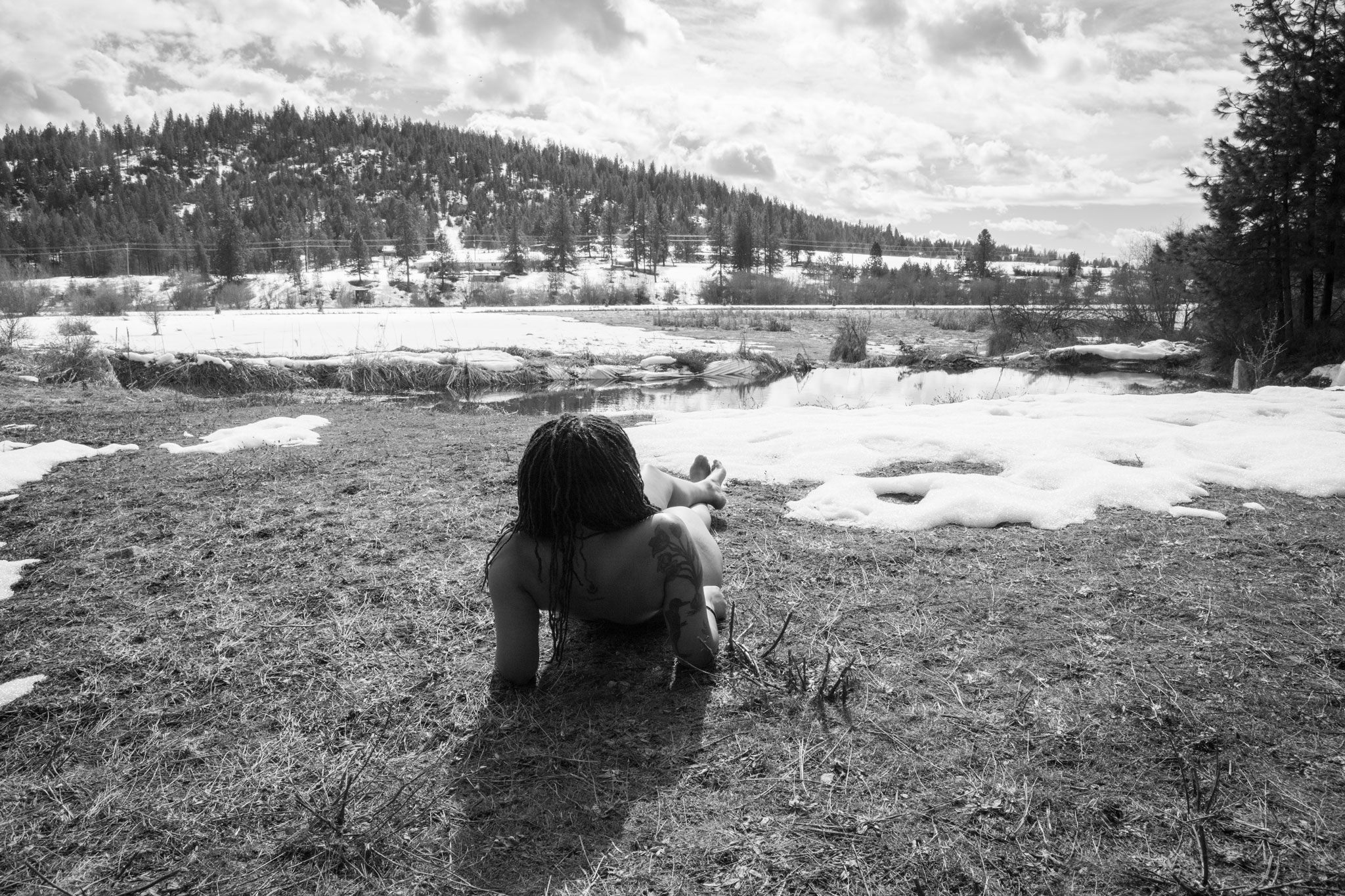

After converting the photos to black and white and printing them as large as her initial portrait, Myesha held a final session for the women to share their stories and take up their own piece of charcoal and draw a smiley face over their portrait.
Myesha felt it was important for each woman to draw on their own portrait, the emotional process of analyzing their faces and using art to comment on their “flaws.” Myesha said that by drawing on all the portraits herself, the project would have been distant and inauthentic.
Some women drew smiles, others drew masks or X-marks over their faces. Ideas were endless — the only exception was that they could not draw numbers or words.
“Sitting for the portrait is easy,” Myesha said. “Staring at your portrait and deciding what you want to draw over it is the hard part.”
Reflecting on others’ comments or their own insecurities, many women were emotional while they studied their faces. Myesha cried with the women in her project, their portraits representing their bare faces and the charcoal representing their insecurities.
“Women are used to being conditioned as being mean and angry if they don’t always smile,” said participant Dana Kangas, who drew a clown face over her portrait. “We are taught not to embrace our wrinkles or our imperfections. We have been suffering quietly for so long, and Mysesha’s project gives us a voice.”
» Expanding the reach
Local women were not the only ones who wanted to participate in the project. Myesha received messages from women across the nation. One woman asked her when the project was coming to Boise.
“I didn’t think my project would spread this far, but now I feel encouraged to take it all over the country,” Myesha said. ‘We are making ourselves vulnerable and embracing our faces.”
Myesha plans to take the exhibit on tour, photographing more women and sharing their stories. With a supportive family behind her, she is less afraid of taking on such a widespread project. She and her husband also made sure to educate their 11-year-old son, Vassar, about the importance of respecting women.
“We have encouraged him to love people, without labels or boxes,” she said.
“We’ve taught him it’s not normal to comment on strangers’ appearances — especially women and girls. The ripples start with the younger generations.”
Myesha said she hasn’t received any pushback on the project so far. Although since her initial gallery showing in March, she has received some concerned and confused responses.
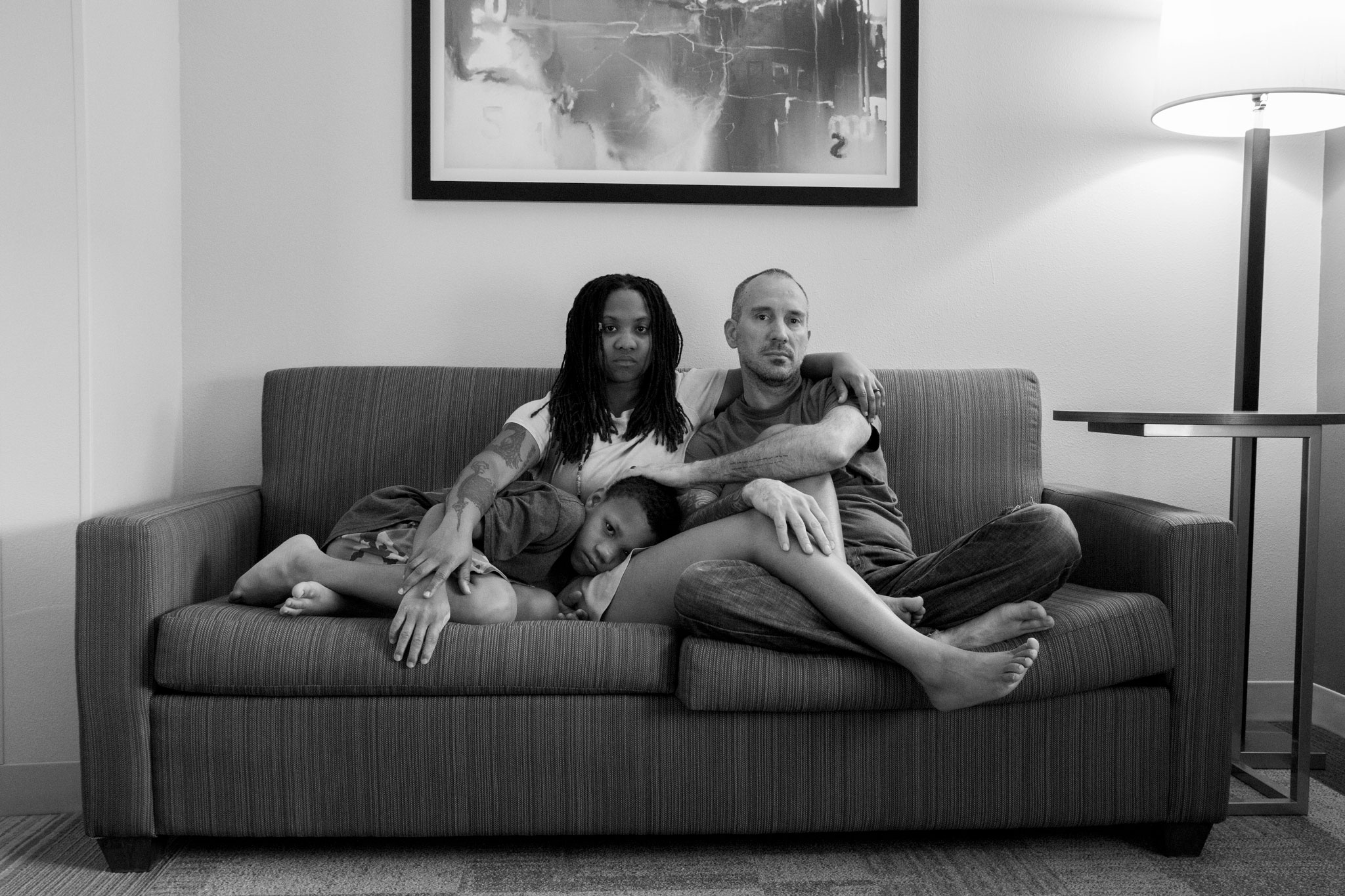

“Some people have labeled my work as ‘feminist’ or ‘political,’” she said. “I honestly didn’t think of the project that way. I was just expressing my world view, my feelings and my frustrations as a woman in this world. But really, I’m proud to be a part of the discussion and learn to love myself flawless.”
It’s true. There is nothing Myesha would change about her face. N
By Rosemary Anderson
Photography By Myesha Callahan Freet
As Featured In: 2018 Summer/Fall SPO Edition


